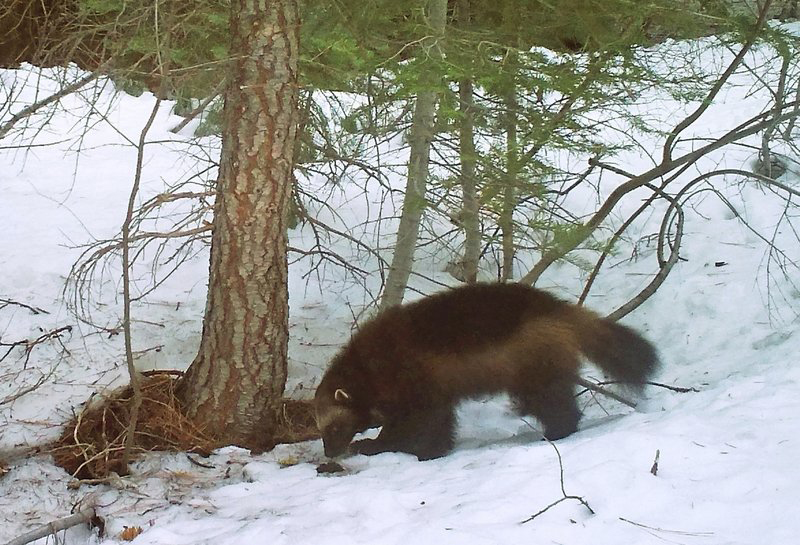US sets deadline for wolverines protection decision
FILE – This on Feb. 27, 2016, file photo provided by the California Department of Fish and Wildlife, from a remote camera set by biologist Chris Stermer, shows a mountain wolverine in the Tahoe National Forest near Truckee, Calif., a rare sighting of the predator in the state. U.S. wildlife officials have agreed to decide by the end of August 2020, whether climate change and other threats are pushing the rare wolverine closer to extinction. Government attorneys and conservation groups that sued to force a decision filed court documents Thursday, July 2, settling the lawsuit and agreeing to the deadline. (Chris Stermer/California Department of Fish and Wildlife via AP, File)
BILLINGS, Mont. (AP) — U.S. wildlife officials have agreed to decide by the end of August whether climate change and other threats are pushing the rare wolverine closer to extinction in the mountains of the West.
Government attorneys and conservation groups that had sued to force a decision filed court documents Thursday settling the lawsuit and agreeing to the deadline.
That came more than four years after a federal judge chastised government officials for rejecting the views of many of its own scientists when it decided against protecting wolverines in 2014.
The predatory animals are members of the weasel family and also known as “mountain devils” or “skunk bears.” They need deep snows to den and scientists warn such habitat could shrink as the Earth heats up.
The famously fierce predators were once found throughout the Rocky Mountains and in California’s Sierra Nevada mountains. Unregulated trapping and poisoning campaigns killed them off across most of their U.S. range almost a century ago.
The dispute over whether protections are needed involves an estimated 250 to 300 of the animals that live in remote areas of Montana, Wyoming, Idaho, Oregon and Washington state.
Populations also survive in Canada and Alaska, and individual wolverines have moved into Colorado and California.



